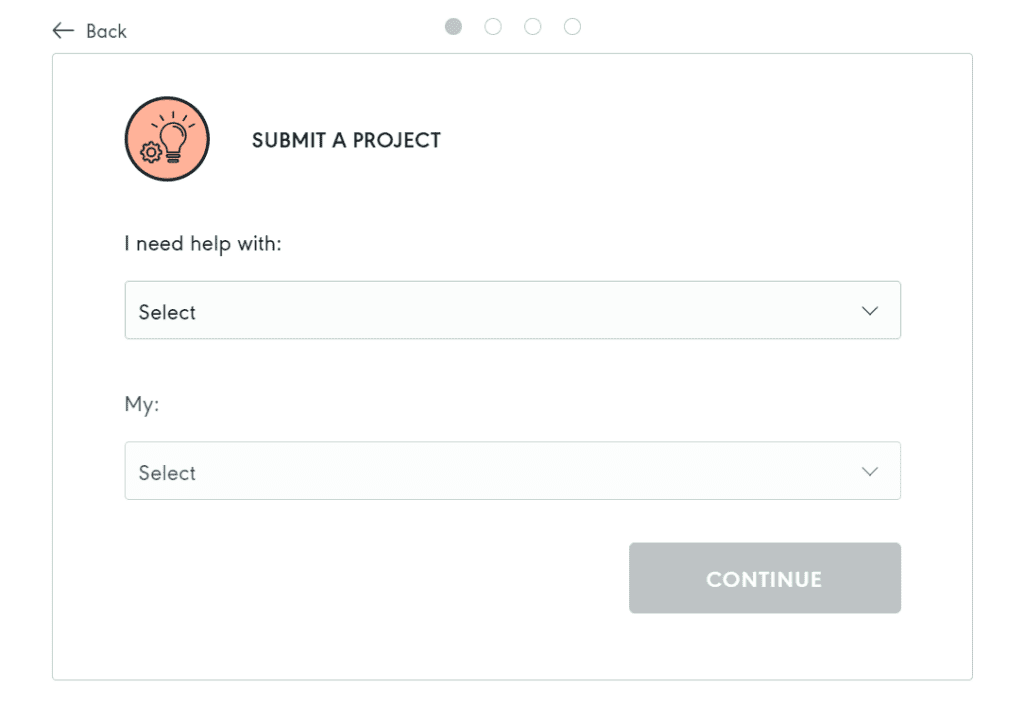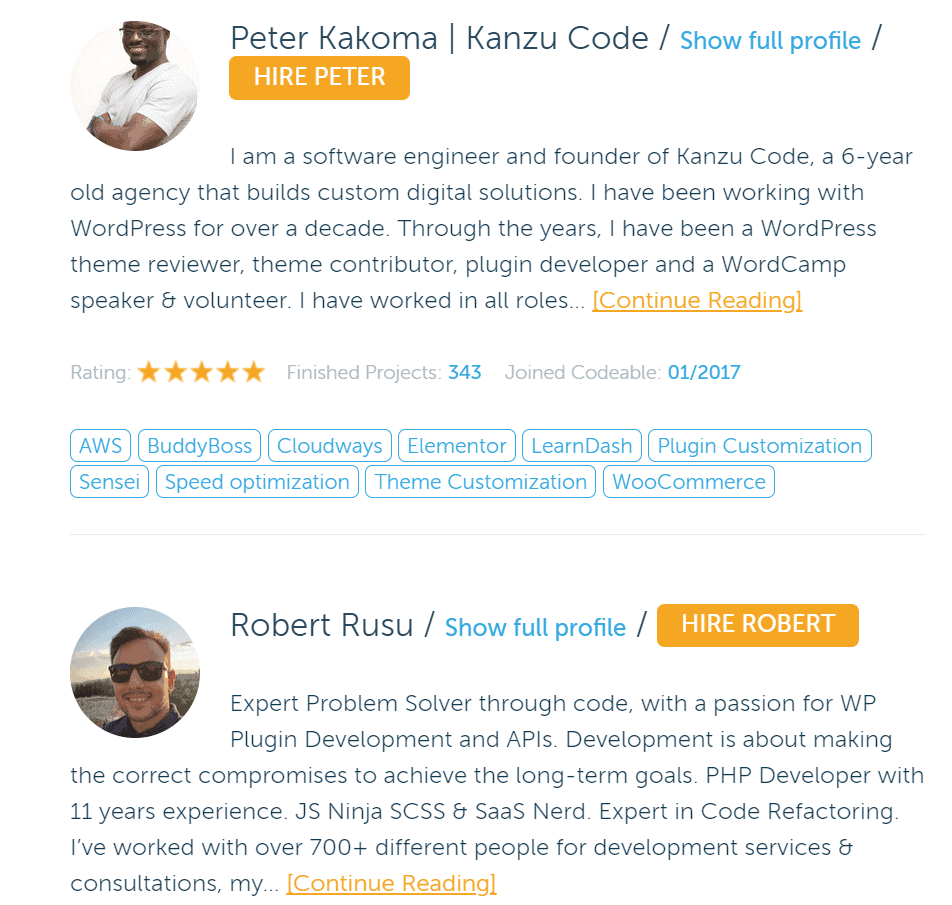For the uninitiated, a content management system (CMS) is software used to create, manage, and edit website content. There are tons of different CMS platforms out there – some of the most popular being WordPress, Drupal, and Joomla.
From a CMS front-end, you can expect an interface where you can edit the visual design of your website. Some CMS employ full-site editing, whereas others only enable you to make changes from a dashboard.
In contrast, from a CMS back-end, you’ll find the core functionality of your website. From here, you should be able to edit, publish, and manage your content.
Most modern CMS don’t require an in-depth knowledge of coding to benefit from their features. In fact, some offer an entirely visual interface, complete with drag-and-drop functionality, so you don’t have to write a single line of code. These kinds of platforms have gone a long way to make web development accessible to anyone.
However, just because non-techies can use a CMS doesn’t always mean you won’t need the services of a skilled web developer. In light of that, this article discusses the benefits of content management systems and why you should work with a CMS developer to tackle more complex projects. We’ll also provide helpful tips for finding a developer with the right skills and background.
Myth: CMS Are Only for Bloggers
There’s a common misconception that CMS are only helpful for bloggers. But in reality, CMS platforms are used by large enterprises and small businesses alike. Namely because when it comes to website creation and content management, they do a lot of the heavy lifting for you.
Most notably:
- A CMS handles all the back-end code
- It takes care of database queries and infrastructure
- It makes it unnecessary for you to start with a blank HTML page.
As such, businesses and individuals can focus on web design and content creation without concerning themselves with the intricacies of building a website.
This is why non-programmers love CMS platforms for their ease of use. Likewise, web developers love them because they lay a solid foundation for future expansion.
The Benefits of a CMS
Some of their other selling points include:
- Most open-source CMS are free to use: Usually, CMS only require you to pay for hosting and a domain name. This enables anyone to get stuck into the CMS development and design process without the pressures of massive financial investment. That said, you may need to hire a skilled expert to help build a website from scratch – especially if you want to establish a specific graphic style or create a custom theme.
- Creating well-formatted content that looks professional is very straightforward. You can quickly type up your content and add headlines, subtitles, and hyperlinks to redirect users to other (internal or external) pages. Depending on your chosen CMS, similar to software solutions like Microsoft Word, content can usually be edited using a WYSIWYG editor (“what you see is what you get”). This means you can style text with bold or italics, apply different fonts, change colors, and edit the alignment in just a few clicks. You can also upload images, videos and add or remove pages as you need.
- CMS are designed with the end-user in mind. CMS simplifies complex tasks like adding menus, headers and footers, sidebars, and much more. They make it easy to deliver intuitive website navigation and a pleasant user experience. Most CMS also come with customizable website templates which you can adapt to suit your needs. This goes a long way to ensuring web design looks consistent across your site. For instance, if you need to change a design element, you only need to modify it in the template file. Then, the edits will automatically apply everywhere else.
- CMS are pretty malleable. Most CMS come with a range of plugins you can download and use to extend your website’s functionality. For example, you might be able to integrate your website with your favorite email marketing and social media tools, create registration forms, handle payments, etc. However, if your chosen CMS doesn’t come with an app market, developers can usually create custom extensions for you.
- CMS are collaborative tools. Typically, you can invite other contributors to collaborate with you from your CMS on different projects.
- CMS ease the burden of managing your website, backing up your data, and running updates. Most of these tasks can be accomplished with just a click.
Do You Really Need a CMS Developer to Work on Your CMS-Based Project?
As we’ve already hinted at, developers can significantly boost the power of your chosen CMS. So, for example, if you have a complex project in mind and your website needs customizing in a certain way, you may need to hire the help of a CMS developer.
This is especially true if you’re looking to scale your website to meet higher traffic demands. Depending on the type of CMS architecture you’re using, you’ll need to access your website’s API to scale your capacity. Needless to say, some programming knowledge is necessary to complete this task, so in this instance, a developer’s help might be crucial.
Here are some of the other projects CMS developers can assist you with:
- CMS migration. Suppose you want to move your website from one CMS to another. In that case, a developer can help you do so quickly and without losing any data.
- CMS app and plugin development. Many CMS allow you to install existing plugins in just a few clicks. But if you require a custom feature, a developer can create it for you.
- CMS support and maintenance. Developers have the knowledge and experience to fine-tune your site’s performance, architecture, and caching. They can optimize database queries and test the site for usability. They can also ensure updates run successfully.
- Checks to ensure security compliance with regulatory standards. This kind of audit can help prevent spam, DDoS attacks, drive-by downloads, data breaches, etc.
How Do You Identify a Good CMS Developer?
Suppose one (or more) of the tasks listed above caught your eye. In that case, you may have decided on hiring a CMS developer. Needless to say, it’s imperative to vet prospective candidates carefully. That said, below, we’ve listed some of the critical hallmarks to assess your software developer for:
Hard Skills CMS Developers Should Have:
- Good knowledge of various programming languages like HTML, SQL, JavaScript, PHP, and CSS
- A thorough understanding of how to make an API call to fetch content
- Familiarity with both traditional and headless CMS’s, as well as a clear understanding of their constraints and limitations
- eCommerce know-how (if you’re running an online store)
Other Important Requirements for CMS Developers:
- Programming experience. Ideally, your chosen developer will have worked on similar projects and showcased them in their portfolio.
- The ability to interpret and work on someone else’s code.
- Enough creativity to look outside the box and try new things.
- Patience to work on maintenance, upgrades, fixing bugs, identifying security threats, etc. Some CMS tasks may require ongoing work, so you’ll want to ensure your developer is prepared to commit to supporting you in the long term.
- Good communication skills. You’ll want to enjoy working with your developer – and communication can make or break a working relationship. So, ensure they clearly communicate any requirements, challenges, suggestions and demonstrate a good understanding of the brief and your business’s objectives and workflow.
How to Find a High-Quality CMS Developer for Your Project
Thanks to the astonishing popularity of CMS, especially WordPress, there are thousands of developers to be found online and many options for finding the right person for the job.
For starters, you could browse freelance platforms, post an ad on a job board, or spread the word through your own professional network. However, the disadvantage of these methods is that you’ll spend lots of time combing through resumes, assessing their years of experience, contacting candidates, planning interviews, testing skills, checking references, reviewing portfolios – the list goes on.
In other words, hiring a CMS developer using any of these traditional methods is a huge hassle.
Fortunately, there’s a viable and user-friendly alternative. You can work with a reliable hiring partner who specializes in software development and CMS platforms. Here, developers and web designers are carefully vetted and screened before they’re added to their candidate pools. As such, you’re guaranteed to only talk with qualified candidates who can do the job. With this kind of service, you’ll also know in advance the developer salary and what you can expect by the end of the project – win-win!
Codeable Specializes in the Planet’s Most Popular CMS – WordPress
If WordPress is your preferred CMS, like over 40% of the web, Codeable is the right hiring partner for you. In fact, it’s trusted and recommended by top WordPress brands like Kinsta, Gravity, WPengine, WooCommerce, and more.
Codeable’s ‘matching system’ ensures you’re only contacted by a handful of highly qualified candidates boasting the required skills and availability to complete your project to deadline.
The process is fast and comes with a money-back guarantee so you can set all worries aside for your next hire. Just start by submitting a quick brief to tell Codeable about your project.


You’ll also get access to a shared workroom so you can discuss and accurately scope the project. Then, finally, you’ll receive a quote from the single-price algorithm that avoids under- and over-pricing. Once you’ve agreed on costs, you can start collaborating.
Are You Ready to Find The Right CMS Developer for You?
As you’ve seen, CMS are powerful platforms that enable novices to create and manage website content. However, while they empower you to complete many web-building tasks quickly and without programming knowledge, many complex projects still benefit from the help of an expert CMS developer.
With the right hiring partner, finding a reliable CMS developer doesn’t have to be complicated. Submit your project on Codeable today to get a free estimate, 100% risk-free.

 Dream It
Dream It
